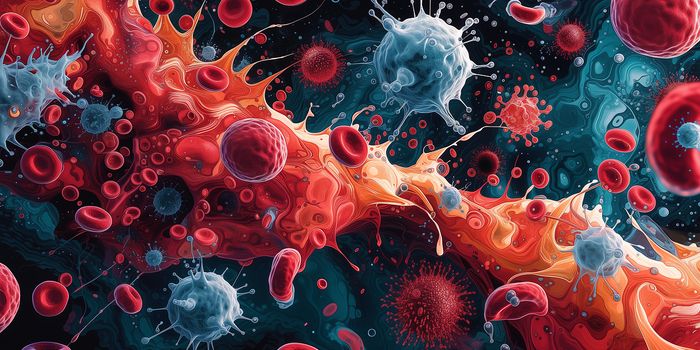Anti-Aging Supplement Linked to Aggressive Breast Cancer
Vitamin B3, also known as niacin, is a generic name for a group of biochemical compounds, including nicotinamide riboside (NR). Recent advances in biomedical research have focused on the clinical potential of NR as it restores cellular levels of an enzyme called nicotinamide adenine dinucleotide (NAD). This essential mediator may protect against metabolic and age-related disorders. Understanding the role of NAD in age-related diseases, and the ability of NR to increase NAD levels, has led to a plethora of NR products marketed as anti-aging and weight loss supplements.
Clinicaltrials.gov lists over 40 ongoing clinical trials involving NR and its ability to modulate a wide range of diseases, including many cancers. Some studies have shown NR as a safe supplement with minimal side effects. Notably, NR is marketed as a supplement and has no therapeutic applications. Much remains unknown about NR's role, particularly concerning how it interacts with different biological components within the body.
In an effort to better understand how different types of cells and tissues use NR, a group of researchers developed a new technique to visualize the enzyme as it travels throughout a living organism. Their findings, recently published in Biosensors and Bioelectronics, raise some alarms about the long-term effects of NR use.
The researchers investigated how NR impacted cancer development in mouse models of triple-negative breast cancer (TNBC). The researchers fed the mice NR-supplemented or normal food for two weeks prior to TNBC inoculation. After ten weeks, tumor prevalence in the NR-supplemented mice exceeded that in the normal diet mice by 27%.
As TNBC metastases to the brain, the researchers also investigated how NR impacted cancer spread to the brain. Again, they found that NR-supplementation had detrimental effects. Mice fed the NR-supplemented diet demonstrated a significantly increased the rate of metastatic spread to the brain. The demonstration linking NR and brain metastasis is particularly alarming as TNBC patients who experience brain metastasis have a very poor prognosis and limited treatment options.
The authors concluded that their data shows that NR supplementation results in a significantly increased prevalence of TNBC and increases metastasis to the brain. The manuscript also indicates that the researchers have ongoing work to decipher the precise mechanism by which NR fuels cancer growth and metastasis. They note a hypothesis suggesting that NR could weaken the blood-brain barrier providing a pathway for cancer cells to get into the brain.
Sources: Nutrients, Sci Rep, Biosensors and Bioelectronics, JAMA Network Open, U Missouri









